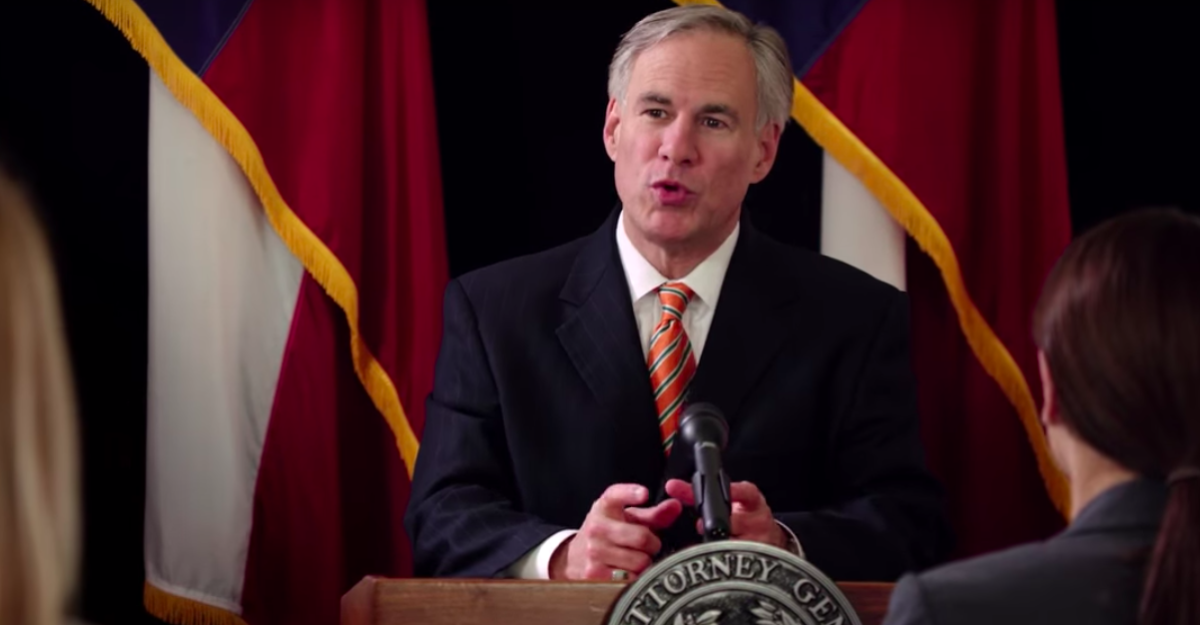
Texas Gov. Greg Abbott (R)
A coalition of voting rights organizations in Texas asked a federal judge on Tuesday to prevent the state from enforcing a sweeping set of controversial new laws that severely restrict the ways Texans can cast a ballot. The measure, SB 1, which was signed into law by Republican Gov. Greg Abbott on Tuesday, bans 24-hour and drive-thru voting while adding new requirements for citizens that wish to cast a ballot by mail, among other restrictions.
Echoing many other GOP officials, Gov. Abbott on Tuesday said the purpose of the bill was to ensure that all Texans “have trust and confidence in our elections,” despite the state seeing its highest voter turnout in nearly 30 years during the 2020 presidential election.
“The bill I’m about to sign helps to achieve that goal,” Abbott said during the special bill signing ceremony. “Election integrity is now law in the state of Texas.”
But the lawsuit, filed in the U.S. District Court for the Western District of Texas, describes the measure as an “omnibus voter suppression bill” whose primary aim is to disenfranchise minority voters and bolster Republican’s power. The state’s demographics—particularly in densely populated cities—have shifted in recent years towards populations that traditionally vote for more Democratic candidates.
“The Legislature enacted SB 1 not to preserve election integrity or combat election fraud—after all, the State’s own election officials have acknowledged that elections in Texas are already secure—but rather to stem the growing tide of minority voter participation by weaponizing the false, repeatedly debunked accusations of widespread voter fraud advanced by supporters of former President Donald Trump during the 2020 presidential election,” Perkins Coie attorney John Hardin wrote in the suit. “It is no coincidence that SB 1 passed just months after Texas Republican Party leaders, including the State’s governor, attorney general, and members of its congressional delegation, tried and failed to overturn the presidential election results and disenfranchise millions of voters in other states.”
The complaint—filed by the League of United Latin American Citizens (LULAC), Voto Latino, the Texas Alliance for Retired Americans, and the Texas American Federation of Teachers (AFT)—argues that bill’s restrictive voting provisions violate the First and Fourteenth Amendments of the U.S. Constitution and federal voting laws. Additionally, because there was no evidence of widespread voter fraud in the 2020 election, the suit argues that the measures cannot be justified by the state’s interest in ensuring election security.
“Because the Suppressive Provisions cannot be justified by any legitimate (much less compelling) state interests, their burdensome and disenfranchising effects violate the First and Fourteenth Amendments to the U.S. Constitution,” the suit states. “And because these provisions were intended to impose a particular burden on Texas’s Black and Latino communities—exacerbating the marginalization caused by more than a century of discriminatory practices undertaken by both the State and its citizens—SB 1 further violates the Voting Rights Act of 1965.”
The groups asked that the court declare SB 1 is unconstitutionally burdensome on voting rights and issue an injunction barring state officials from enforcing its restrictive provisions.
Texas AFT President Zeph Capo said the law was “an embarrassment” to the state that is out-of-touch with the times.
“This law is an embarrassment, one that students will see as taking us backward to a time when many voices and their votes were repressed,” he said in a statement accompanying the lawsuit. “While our students are learning about past discriminatory voting practices, they are confronted today with a life lesson that proves the adage that those who don’t learn their history are doomed to repeat it. This law sends a harmful and ominous message about our students’ future ability to participate in our democracy.”
Democratic members of the Texas House of Representatives made national headlines earlier this summer when they fled the state for D.C. in order to deny Republicans the quorum necessary to pass SB 1. Despite the delay tactic, the House returned to quorum on Aug. 19 and SB 1 was passed before the end of the month.
According to statistics provided by the Texas Attorney General’s Office, there is no evidence of widespread voter fraud in the state dating back to 2004. In total, between 2004 and March 2021, the state charged 154 people with 534 counts related to possible voter fraud.
A report from local ABC-affiliated news station KVUE-TV compared the fraud-related charges brought in the state to the total number of votes cast over that period and concluded that “approximately 0.0006% of the votes cast in that time frame resulted in a prosecution case being resolved.”
Further evincing the dearth of evidence indicating widespread voter fraud, Texas Lt. Governor Dan Patrick (R) in November offered a reward of up to $1 million from his campaign account for “whistleblowers and tipsters” from anywhere in the nation that were able to come forward with evidence of voter fraud. There is no evidence that Patrick has paid out any reward money. His office did not immediately respond to an email from Law&Crime seeking clarification as to how many people, if any, received reward money for providing evidence of voter fraud.
Read the lawsuit below.
[image via YouTube screengrab]